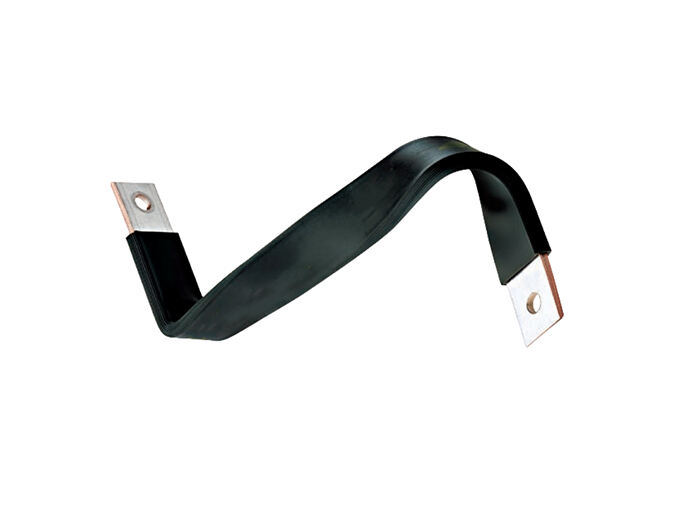What are the Benefits of Copper and Aluminum in Electrical Systems Explore
Common construction metals in electrical or power supply systems include copper and aluminum. While both metals are good conductors of electricity, they have very different physical properties that affect their performance and price. In earlier days, when copper was used as a metal for busbar conversion it prevailed among manufacturers because of its high conductivity and long last property. In fact, in the recent past aluminum has become a cost-effective solution and an economic friendly option for companies to meet their electrical needs. So if we dive into the comparison between copper and aluminum for electrical systems here is where their benefits apply, as well how they are used.
Benefits of Aluminum on Electrical Systems
One of the key features that makes aluminum unique in this metal lineup is that it has a low weight, which means it would be easy to transport and install (compared to copper). But its affordability means it is certainly an option for businesses looking to reduce costs, while not scrimping on quality. Although its conductivity is less than that of copper, advances in manufacturing technology have allowed silver-alloyed aluminum to be able to take high current loads by employing larger cross-sectional areas.
In addition to being cost-effective, aluminum is corrosion-resistant thanks its non-oxidizing properties which tend support the sustainability of electrical systems life cycle by resisting oxidation and preventing internal system failure. In addition to this, it is a non-magnetic which makes more safer with most EMI (electromagnetic interference) applications. Aluminum, which scores on top of the recyclability table, making it in line with sustainability goals for environmentally friendly businesses.
Aluminum Manufacturing Innovation for Electrical Systems
In fact, a lot has happened with the manufacturing process of aluminum that it is now much more reliable and efficient in electrical systems. Extrusion technology for the implementation of complex shapes and design works is accepted now with its fine tolerance levels. This technology has resulted in the development of high current and voltage handling busbar design being so advanced that they can now even support single node supply without any need for external structure requirements.
Further, the incorporation of premium quality insulation materials has bumped up the insulated properties in aluminum bus bars which prevents damage in rough industrial surroundings. These advancements have turned aluminum into an effective replacement for copper especially in high-power applications where added strength and efficiency are taken much under consideration.
How To Make Aluminum Busbars Safe And Use Properly
Provided that busbars are installed properly and frequent maintenance is performed, using aluminum for your electrical systems is also pretty safe. This includes protecting them from harsh chemicals, checking their insulation for effectiveness regularly and not overloading the machine past its rated capacity. To avoid overheating and ensure proper function, aluminum busbars should be installed in a well-ventilated area according to manufacturer guidelines.
Aluminum busbars are applied in a wide range of applications such as larger field uses like power distribution, switchgears and motor controls to smaller components such as transformers. Their outputs are not subject to voltage transients, making them best suited for high-voltage applications requiring light weight and corrosion resistance. Knowing the properties of the specific aluminum busbar you are using, such as maximum current capacity, voltage rating and recommendations for insulation material is important so that everything operates efficiently and safely.
The Quality and Utility of Aluminum Busbars
The standards of aluminum busbars are attributed to their durability, efficiency and performance qualities. Aluminum busbars must be procured from the right suppliers who can provide all relevant and detailed specifications as well as support in their fitting, application. The utility of aluminum busbars is myriad, with the applications ranging from power generation to industrial automation and electric vehicles etc., that entails for high level of systems offering greater output but also at lighter weights.
To sum up, the decision of copper and aluminum for busbar transformation depends upon a certain business or application. While copper is known for its conductiveness and resilience, the cost savings associated with newer manufacturing techniques are making aluminum an attractive alternative. For businesses trying to cut costs and improve on operational efficiency in their electrical systems, aluminum busbars can provide a secure option of minimal maintenance.
 EN
EN
 AR
AR
 BG
BG
 HR
HR
 CS
CS
 DA
DA
 NL
NL
 FI
FI
 FR
FR
 DE
DE
 EL
EL
 HI
HI
 IT
IT
 JA
JA
 KO
KO
 NO
NO
 PL
PL
 PT
PT
 RO
RO
 RU
RU
 ES
ES
 SV
SV
 CA
CA
 TL
TL
 IW
IW
 ID
ID
 LV
LV
 LT
LT
 SR
SR
 SK
SK
 UK
UK
 VI
VI
 SQ
SQ
 HU
HU
 TH
TH
 TR
TR
 FA
FA
 MS
MS
 GA
GA
 LA
LA





